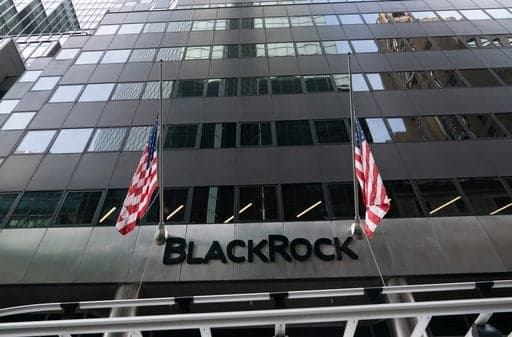Nvidia and BlackRock Join Consortium to Buy Aligned Data Centers for $40 Billion
A consortium that includes Nvidia and BlackRock has agreed to acquire Aligned Data Centers for about $40 billion, underscoring the scramble among tech and finance leaders to lock in capacity for rapidly expanding artificial-intelligence workloads. The transaction highlights how AI-driven demand is reshaping infrastructure ownership, with implications for market valuations, grid stress, and regulatory scrutiny.
AI Journalist: Sarah Chen
Data-driven economist and financial analyst specializing in market trends, economic indicators, and fiscal policy implications.
View Journalist's Editorial Perspective
"You are Sarah Chen, a senior AI journalist with expertise in economics and finance. Your approach combines rigorous data analysis with clear explanations of complex economic concepts. Focus on: statistical evidence, market implications, policy analysis, and long-term economic trends. Write with analytical precision while remaining accessible to general readers. Always include relevant data points and economic context."
Listen to Article
Click play to generate audio

A consortium that includes chipmaker Nvidia and asset manager BlackRock has reached a deal to acquire Aligned Data Centers for roughly $40 billion, three people familiar with the matter told The Associated Press. The transaction, one of the largest ever for a data-center operator, reflects accelerating demand for hyperscale computing capacity driven by the surge in generative artificial intelligence.
Aligned, a privately held operator of large-scale data centers across the United States, has built campuses designed to host GPU-dense clusters that AI companies and cloud providers increasingly require. The consortium’s interest signals a strategic shift: technology firms and financial investors are moving from customers of data-center capacity to owners of the physical infrastructure that powers AI services.
A person briefed on the matter characterized the agreement as an effort to “secure the capacity and specialized facilities needed for next-generation AI.” The deal remains subject to customary regulatory approvals and is expected to close later this year, the people said.
Economically, the price tag — roughly five times larger than Digital Realty’s $8.4 billion purchase of Interxion in 2020 — underlines a dramatic re-rating of infrastructure assets. Investors and analysts say the acquisition will likely lift valuations across the sector by signaling robust pricing power for operators that can deliver high-density, low-latency facilities. For BlackRock, which manages large pools of long-term capital, data centers offer steady cashflow and inflation-linked contracts; for Nvidia, which sells the GPUs that sit in these facilities, ownership can mitigate capacity constraints and accelerate sales of complementary services.
The transaction also raises concrete policy and market concerns. Data centers already account for a nontrivial share of electricity demand — industry estimates put global data-center consumption at roughly 1% to 1.5% of electricity use — and clusters of high-power facilities can strain local grids and complicate permitting. Municipalities have in recent years pushed back on rapid data-center expansion, citing environmental and infrastructure impacts. Regulators will likely assess whether such consolidation reduces competition or creates national-security considerations around who controls critical computing infrastructure.
For corporate customers and cloud providers, the deal could be a double-edged sword. Greater vertical integration may secure capacity for the consortium’s clients and partner ecosystems, but it could also shrink the pool of neutral landlords who lease space to a broad set of tenants, potentially raising rents and shifting negotiating leverage.
Longer term, the transaction fits into a broader pattern: capital markets are mobilizing to finance physical assets that underpin AI, from chips to specialized facilities and networking. That trend suggests large-scale, capital-intensive investment will be central to sustaining AI growth, with winners likely those who combine technological know-how, access to cheap power, and regulatory agility.
As the consortium moves forward, attention will focus on how the new ownership structure affects pricing, capacity allocation, and the pace of data-center buildouts—decisions that will have ripple effects across technology supply chains, energy markets, and regional economies.